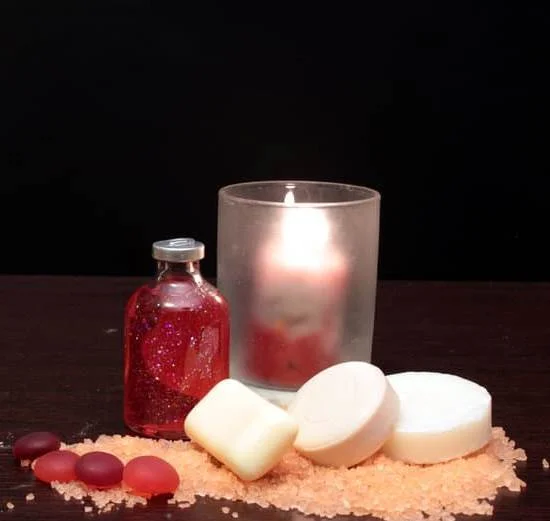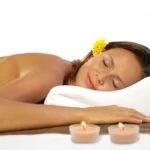Aromatherapy has gained popularity in recent years as a natural way to improve physical and psychological well-being. One common question that arises is, “Can I use aromatherapy essential oils on my skin?” Aromatherapy essential oils are highly concentrated plant extracts that have been used for centuries for their therapeutic properties. In this article, we will explore the basics of aromatherapy essential oils and their potential benefits and risks when used on the skin.
Essential oils are derived from various parts of plants, including the leaves, flowers, stems, and roots. They are known for their distinct fragrances and therapeutic properties. When used in aromatherapy, these essential oils can be inhaled or applied to the skin to promote relaxation, alleviate stress, and address various skin concerns. However, it is important to understand how to safely use these potent oils to avoid potential adverse effects.
Before incorporating aromatherapy essential oils into your skincare routine, it is crucial to understand their benefits and how they interact with the skin. Essential oils can offer a wide range of advantages for skin health, such as moisturizing dry skin, reducing inflammation, treating acne, and promoting overall skin rejuvenation. With proper knowledge and guidance, aromatherapy essential oils can be valuable additions to your skincare regimen.
The Benefits of Aromatherapy Essential Oils for the Skin
Aromatherapy essential oils have been used for centuries for their various health benefits, including their positive effects on the skin. When used properly, these oils can help improve the overall health and appearance of the skin. From moisturizing and nourishing to soothing and rejuvenating, aromatherapy essential oils offer a wide range of benefits for the skin.
Moisturizing and Hydrating
One of the key benefits of using aromatherapy essential oils on the skin is their ability to moisturize and hydrate. Oils such as jojoba, rosehip, and argan are known for their moisturizing properties, helping to lock in moisture and prevent dryness. These oils can be especially beneficial for those with dry or dehydrated skin, providing a natural solution for maintaining skin hydration.
Soothing and Calming
Many aromatherapy essential oils also have soothing and calming properties that can benefit the skin. Oils like lavender, chamomile, and geranium are known for their gentle and calming effects on the skin, making them ideal for sensitive or irritated skin. These oils can help reduce redness, inflammation, and irritation, promoting a more balanced and comfortable complexion.
Anti-Aging and Rejuvenating
In addition to moisturizing and soothing effects, some aromatherapy essential oils also offer anti-aging and rejuvenating benefits for the skin. Oils such as frankincense, rosemary, and neroli are prized for their ability to promote cell regeneration, improve elasticity, and reduce the appearance of fine lines and wrinkles.
When used regularly as part of a skincare routine, these oils can help support youthful-looking skin. However there are potential risks associated with using these oil directly on your skin without proper dilution so it’s important to understand how to use them safely.
Overall incorporating aromatherapy essential oils into your daily skincare regimen <can i use aromatherapy essential oils on my skin> provide a variety of benefits that can enhance the health and appearance of your skin. Whether you’re looking to address specific skincare concerns or simply want to enjoy the sensory experience of using aromatic botanicals, there are numerous ways to incorporate these beneficial oils into your skincare routine while ensuring safety is paramount.
The Safety of Using Aromatherapy Essential Oils on the Skin
Aromatherapy essential oils are becoming increasingly popular as natural remedies for various health and wellness concerns. These potent oils are derived from plant extracts and are known for their therapeutic properties, including their potential benefits for the skin. However, it is important to understand the safety implications of using aromatherapy essential oils on the skin.
When it comes to using aromatherapy essential oils on the skin, it’s crucial to exercise caution and be well-informed about best practices. While these oils can offer a range of benefits for skin health, they are highly concentrated and can cause irritation or adverse reactions if not used properly. Here’s what you need to know about the safety of using aromatherapy essential oils on the skin:
1. Patch Testing: Before applying any aromatherapy essential oil to your skin, it is important to perform a patch test to check for any allergic reactions or sensitivities. To do this, dilute a small amount of the essential oil with a carrier oil (such as almond oil or coconut oil) and apply it to a small area of your skin. Wait 24 hours to see if there is any redness, itching, or irritation.
2. Proper Dilution: Aromatherapy essential oils should always be diluted before applying them to the skin. This helps reduce the risk of irritation and ensures that the oil is safe for topical use. The general rule of thumb is to use no more than 1-2% concentration of essential oil in a carrier oil.
3. Sensitizing Oils: Some essential oils are known to be sensitizing when applied directly to the skin, especially if used in high concentrations or over prolonged periods of time. It’s important to be aware of which oils fall into this category and how they should be used safely.
Ultimately, while aromatherapy essential oils can offer wonderful benefits for skin health, it’s crucial to prioritize safety and proper usage in order to avoid adverse reactions or complications when incorporating them into your skincare routine.
How to Properly Dilute Aromatherapy Essential Oils for Skin Use
Aromatherapy essential oils are a popular choice for skin care due to their natural and therapeutic properties. However, it is crucial to use them safely and correctly in order to avoid any adverse reactions. Here are some essential tips on how to properly dilute aromatherapy essential oils for skin use:
- Choose Carrier Oils: Before applying aromatherapy essential oils to the skin, it is important to dilute them with a carrier oil. Carrier oils help reduce the potency of the essential oil and prevent skin irritation. Popular carrier oils include jojoba oil, coconut oil, almond oil, and olive oil.
- Dilution Ratios: The proper dilution ratio for aromatherapy essential oils is typically 1-2% for facial skincare and 2-5% for body skincare. This means adding around 6-12 drops of essential oil per ounce of carrier oil for facial use, and 12-30 drops per ounce for body use.
- Patch Test: Before using any diluted aromatherapy essential oil on a larger area of your skin, it’s important to do a patch test first. Apply a small amount of the diluted mixture on a small patch of skin and wait at least 24 hours to see if you experience any adverse reactions.
Properly diluting aromatherapy essential oils is key to ensuring their safe and effective use on the skin. By following these guidelines, you can i use aromatherapy essential oils on my skin without worry about potential irritation or other negative side effects. Always consult with a qualified aromatherapist or healthcare professional if you have any concerns about using these oils on your skin.
Understanding the Different Types of Aromatherapy Essential Oils for Skin Health
Aromatherapy essential oils have gained popularity for their potential benefits for the skin. There are several types of essential oils that can be used to promote skin health and address various skin concerns.
One of the most popular essential oils for skin health is lavender oil, which is known for its calming and soothing properties. It can help reduce redness, irritation, and inflammation, making it a great option for those with sensitive or irritated skin. Another commonly used essential oil is tea tree oil, which has antimicrobial and anti-inflammatory properties that make it effective in treating acne and other skin infections.
Rosehip seed oil is another essential oil that is well-regarded for its ability to hydrate and nourish the skin. Rich in antioxidants, vitamins, and fatty acids, rosehip seed oil can help improve skin texture, reduce the appearance of scars and fine lines, and promote overall skin health.
When using aromatherapy essential oils on the skin, it’s important to choose high-quality oils from reputable sources to ensure safety and efficacy. Always dilute essential oils with a carrier oil before applying them to the skin to avoid irritation or adverse reactions. Additionally, perform a patch test before using an essential oil to check for any sensitivity or allergic reactions.
| Essential Oil | Skin Benefits |
|---|---|
| Lavender Oil | Calming and soothing properties; reduces redness, irritation, and inflammation |
| Tea Tree Oil | Antimicrobial and anti-inflammatory properties; effective in treating acne and skin infections |
| Rosehip Seed Oil | Hydrates and nourishes the skin; improves texture, reduces scars and fine lines |
Tips and Tricks for Using Aromatherapy Essential Oils on the Skin
Aromatherapy essential oils can greatly benefit the skin when used properly and safely. They can help improve the skin’s texture, tone, and overall health. However, it is important to understand how to use them correctly to avoid any potential risks or side effects.
When using aromatherapy essential oils on the skin, it is crucial to dilute them properly. Essential oils are highly concentrated and can cause irritation or sensitization if not diluted before application. The general rule of thumb is to mix one to two drops of essential oil with one teaspoon of carrier oil, such as coconut oil or almond oil, before applying it to the skin.
It is also important to do a patch test before using any new essential oil on your skin. This involves applying a small amount of diluted oil on a small area of your skin and waiting 24 hours to see if there is any adverse reaction. This simple step can help prevent potential allergic reactions or irritation from occurring.
Another tip for using aromatherapy essential oils on the skin is to avoid applying them directly onto sensitive areas such as the face or genitals. Instead, mix the essential oil with a carrier oil before applying it topically. Additionally, always follow proper storage guidelines for your essential oils to maintain their potency and effectiveness.
| Aromatherapy Essential Oils on Skin | Importance |
|---|---|
| Dilution | Proper dilution is important to avoid skin irritation |
| Patch Test | Testing for allergic reactions before full application |
Potential Risks and Side Effects of Using Aromatherapy Essential Oils on the Skin
When it comes to using aromatherapy essential oils on the skin, it is important to be aware of the potential risks and side effects that may occur. While these oils can provide numerous benefits for skin health, they can also pose certain risks if not used properly.
Potential Skin Irritation
One of the main risks associated with using aromatherapy essential oils on the skin is the potential for irritation. Some essential oils are highly concentrated and can cause redness, itching, or a burning sensation when applied directly to the skin. It is important to perform a patch test before using any new essential oil on your skin to determine if you have sensitivity or an allergic reaction.
Photosensitivity
Certain essential oils contain compounds that can make your skin more sensitive to sunlight, leading to sunburn or pigmentation issues. This is known as photosensitivity. Oils such as bergamot, lemon, and lime are known to possess photosensitive properties. To avoid this risk, it is recommended to use these oils in products that can be washed off rather than leave them on the skin exposed to sunlight.
Other Potential Side Effects
In addition to skin irritation and photosensitivity, some individuals may experience other adverse effects when using aromatherapy essential oils on their skin. These may include headaches, dizziness, nausea, or respiratory issues if the oil is inhaled too closely after application.
It’s important for anyone considering using aromatherapy essential oils on their skin to understand these potential risks and side effects in order to make informed decisions about their use. By being aware of these concerns and taking proper precautions, individuals can enjoy the benefits of aromatherapy while minimizing any potential negative effects.
Conclusion
In conclusion, using aromatherapy essential oils on the skin can be a beneficial and enjoyable experience when done safely and responsibly. The benefits of using these oils for skin health are numerous, including moisturizing, toning, and promoting overall skin wellness. However, it is crucial to understand the proper dilution methods and potential risks associated with using essential oils on the skin.
By taking the time to educate yourself on the different types of aromatherapy essential oils and their specific benefits for skin health, you can make informed decisions about which oils are best suited for your individual needs. Additionally, learning how to properly dilute essential oils for safe application is key in avoiding potential adverse reactions or side effects.
Incorporating aromatherapy essential oils into your skincare routine can be a delightful and effective way to support your skin’s health and wellbeing. With the proper knowledge and caution, you <can i use aromatherapy essential oils on my skin> with confidence while reaping the many advantages they have to offer. Remember to always prioritize safety and consult with a healthcare professional if you have any concerns or questions about using essential oils on your skin.
Frequently Asked Questions
Can Aromatherapy Essential Oils Be Used Topically?
Aromatherapy essential oils can be used topically, but it is important to dilute them with a carrier oil before applying them to the skin. This helps prevent irritation and sensitivity, and also allows for better absorption.
Which Essential Oils Should Not Be Used on Skin?
Some essential oils should not be used on the skin, as they can cause irritation or even allergic reactions. These include oils like cinnamon, oregano, and clove. It’s always best to do a patch test before applying any new essential oil to your skin.
Is It Good to Put Essential Oils on Your Body?
It can be good to put essential oils on your body when done properly and safely. Essential oils have been used for centuries for their potential therapeutic benefits, such as relaxation or pain relief. However, it’s important to follow safety guidelines and use them in moderation.

Are you looking for a natural way to improve your health and wellbeing?
If so, aromatherapy may be the answer for you.





